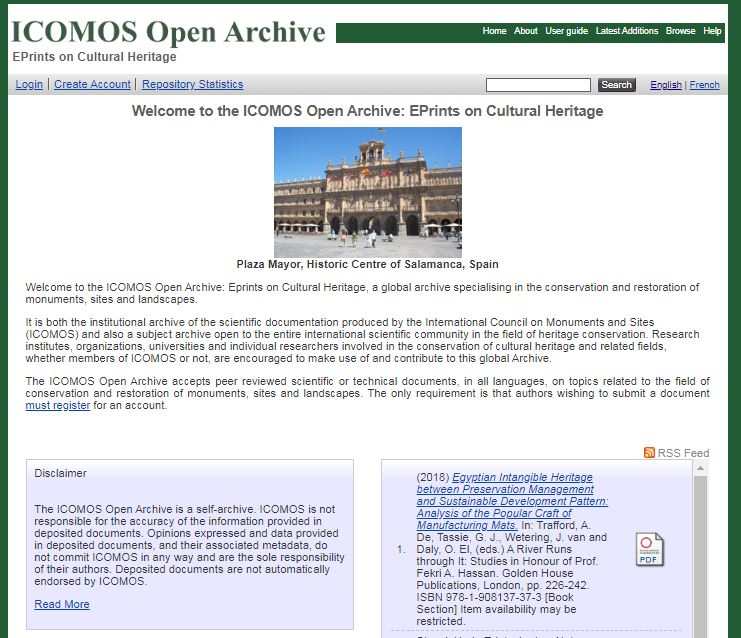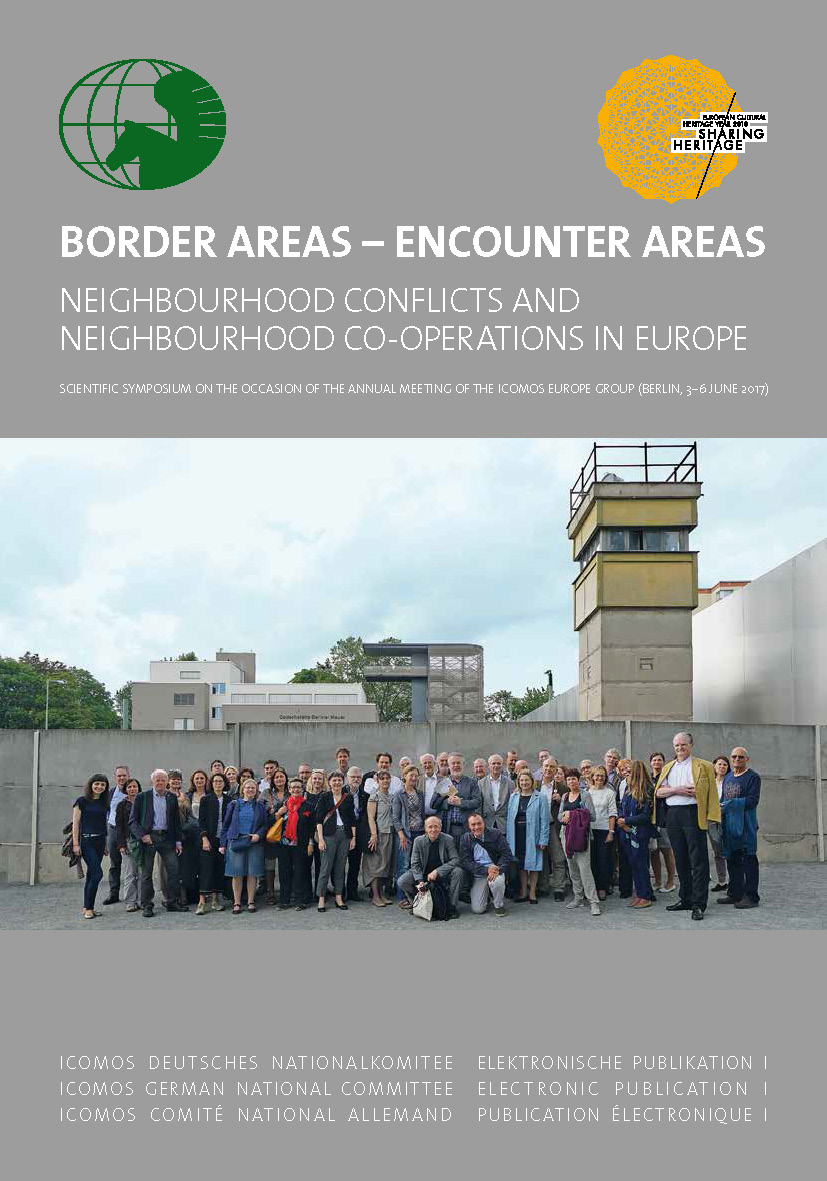ICOMOS publications online

All this digital documentation is stored and made available to members and the public in the ICOMOS open archive.

All this digital documentation is stored and made available to members and the public in the ICOMOS open archive.
 The ICOMOS Documentation Centre is happy to offer ICOMOS members a new benefit: the free digitization of documents (articles, book chapters, reports...) from the Documentation Centre's collections, within the limits of the copyright legislation.
The ICOMOS Documentation Centre is happy to offer ICOMOS members a new benefit: the free digitization of documents (articles, book chapters, reports...) from the Documentation Centre's collections, within the limits of the copyright legislation.

In 2019, the theme of the International Day on Monuments and Sites is Rural Landscapes – which is linked to the theme of the 2019 ICOMOS Scientific Symposium on Rural heritage to take place in October in Marrakesh, Morocco (see our page about the Symposium and the call for proposals).
In the ICOMOS “Principles concerning rural landscapes as heritage”, adopted by the ICOMOS General Assembly in 2017, rural landscapes are defined as “terrestrial and aquatic areas co-produced by human-nature interaction used for the production of food and other renewable natural resources, via agriculture, animal husbandry and pastoralism, fishing and aquaculture, forestry, wild food gathering, hunting, and extraction of other resources, such as salt.
 This e-publication contains the proceedings of the Scientific symposium that was held on the occasion of the annual meeting of the ICOMOS Europe Group (Berlin, 3–6 June 2017). The report presents neighborhood conflicts and co-operations in Europe with 15 examples of shared War Heritage (from boundary stones to the Green belt and the Iron curtain) and trans-boundary cooperation projects in many fields such as comparative studies, monument restructuring, and conservation of rural and biological areas. It also includes a section about the creation of a European Heritage label Network to commemorate the European history heritage.
This e-publication contains the proceedings of the Scientific symposium that was held on the occasion of the annual meeting of the ICOMOS Europe Group (Berlin, 3–6 June 2017). The report presents neighborhood conflicts and co-operations in Europe with 15 examples of shared War Heritage (from boundary stones to the Green belt and the Iron curtain) and trans-boundary cooperation projects in many fields such as comparative studies, monument restructuring, and conservation of rural and biological areas. It also includes a section about the creation of a European Heritage label Network to commemorate the European history heritage.
To quote from the text of the Convention for the Safeguarding of the Intangible Cultural Heritage, "the 'intangible cultural heritage' means the practices, representations, expressions, knowledge, skills – as well as the instruments, objects, artefacts and cultural spaces associated therewith – that communities, groups and, in some cases, individuals recognize as part of their cultural heritage."
How are tangible and intangible cultural heritages interconnected? Why is the conservation of intangible heritage an integral part of the conservation of monuments and sites?
ICOMOS has released the first volume of its International University Forum's scientific output. The papers in this collection derive from the international ICOMOS University Forum Workshop on Authenticity and Reconstructions held 13–15 March 2017 at ICOMOS International Headquarters in Paris, France. The meeting constituted a pilot project of the new ICOMOS University Forum to stimulate dialogues between academics and heritage experts. Accordingly, this is the first volume of the new ICOMOS University Forum Results.
ICOMOS informs you that, when browsing the ICOMOS website and all the pages of this domain, cookies are placed on the user's computer, mobile or tablet. No cookies are used to track users for commercial or advertising purposes.
A cookie is a piece of information stored by a website on the user's computer and that the user's browser provides to the website during each user’s visit.
These cookies essentially allow ICOMOS to:
You will find below the list of cookies used by our website and their characteristics:
Cookies created by the use of a third-part service on the website:
https://developers.google.com/analytics/devguides/collection/analyticsjs/cookie-usage)
https://policies.google.com/technologies/types?hl=en)
For information:
You can set up your browser to alert you of the presence cookies and offer you to accept them or not. You can accept or refuse cookies on a case-by-case basis or refuse them once and for all. However, some features of the ICOM website cannot function properly without cookies activated.
The setting of cookies is different for each browser and generally described in the help menus. You will find more explanations on how to proceed via the links below.
|
Firefox • |
Chrome • |
Safari • |